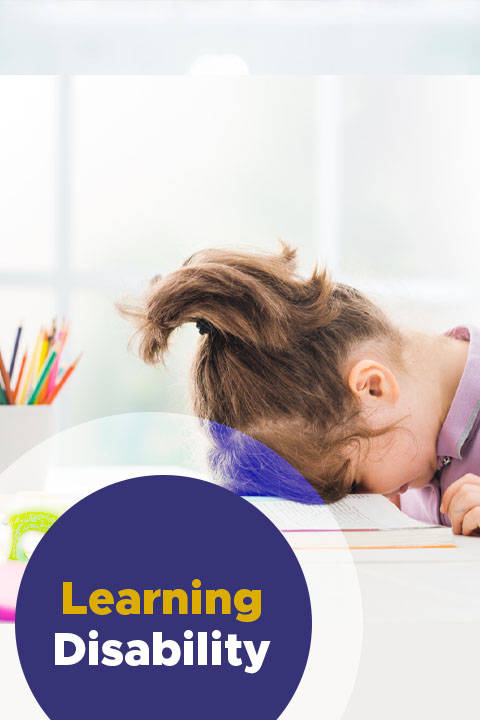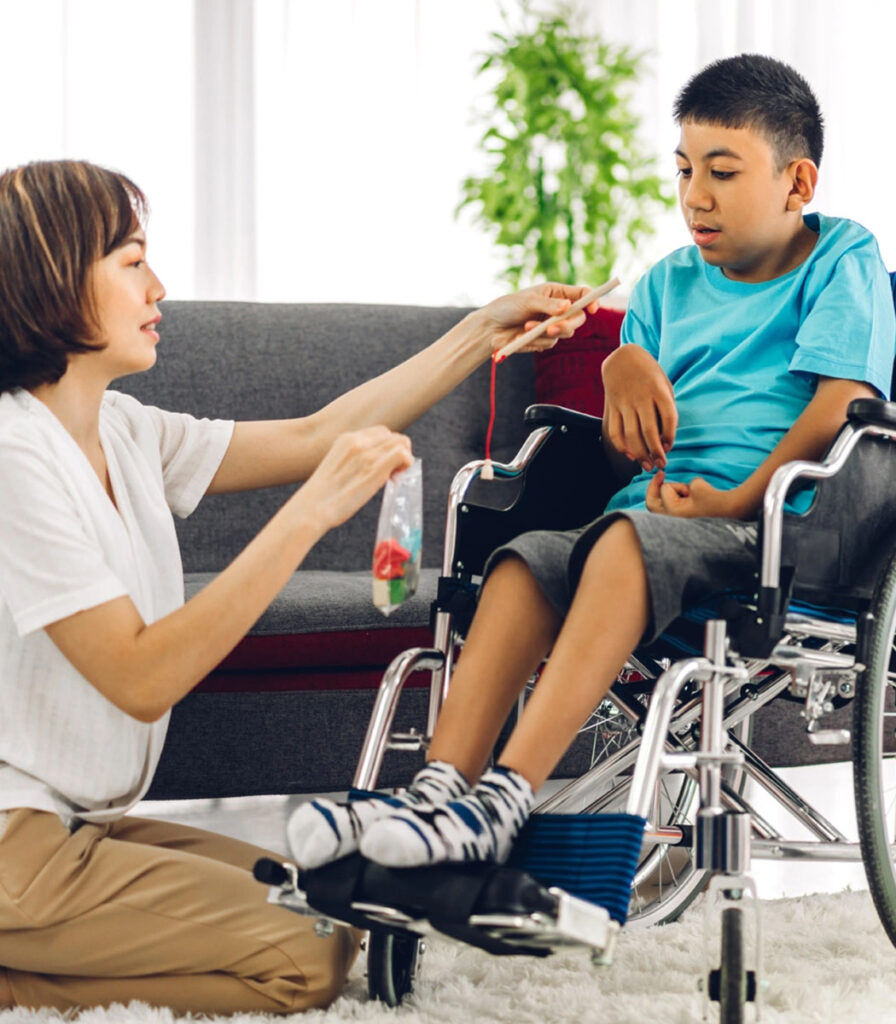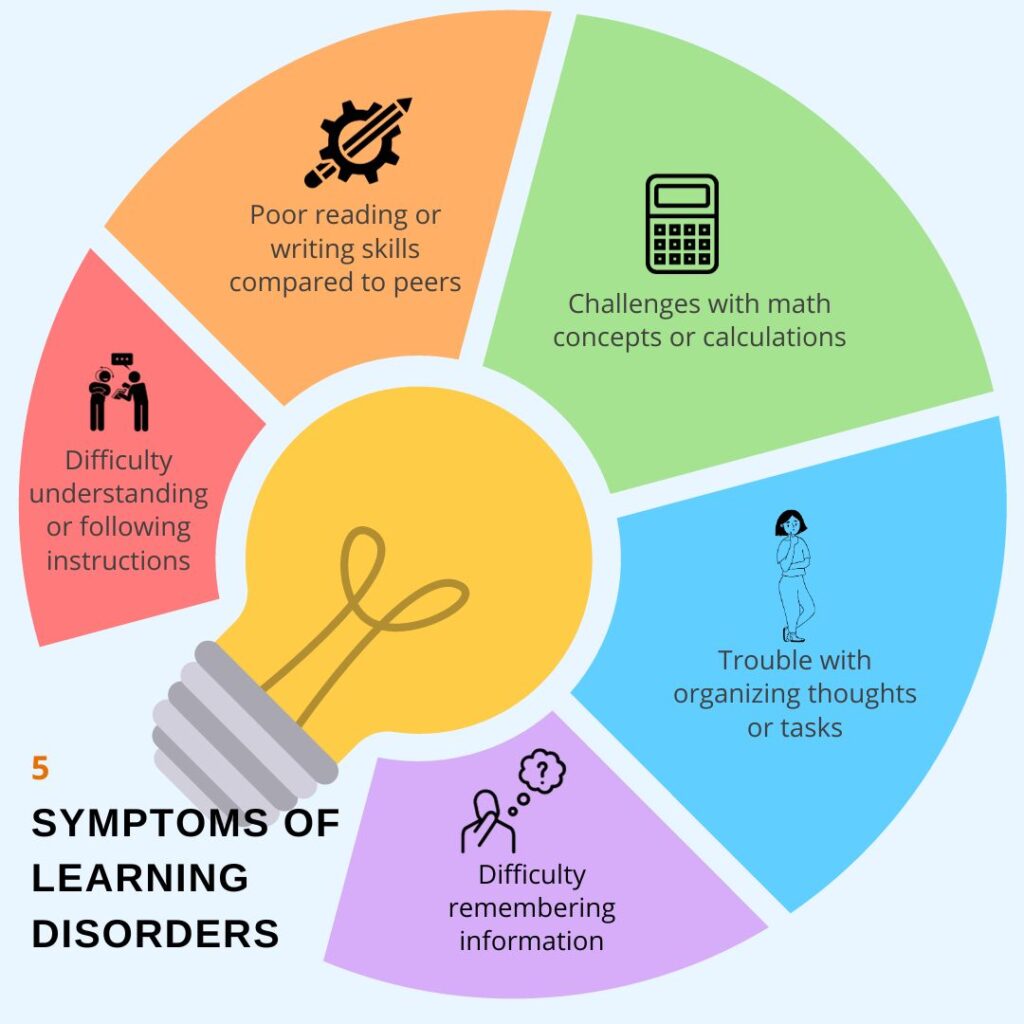
A learning disability is a neurological condition that affects the way a person processes information, making it challenging for them to learn at the same pace or in the same way as others. These disabilities can impact skills such as reading, writing, math, organization, time management, reasoning, and attention.
Dyslexia: Difficulty with reading, spelling, and recognizing words.
Dyscalculia: Challenges with understanding numbers and mathematical concepts.
Dysgraphia: Difficulty with writing, including spelling, handwriting, and organizing thoughts on paper.
Auditory Processing Disorder (APD): Difficulty in interpreting auditory information.
Visual Processing Disorder: Difficulty in interpreting visual information.
Learning disabilities often stem from differences in brain structure or function, particularly in areas related to language and learning. They can be hereditary or arise from developmental factors before, during, or after birth (such as premature birth, brain injury, or exposure to toxins).

Our Home care services for individuals with learning disabilities focus on providing tailored support to enhance their independence, learning abilities, and overall quality of life within the comfort of their own homes. These services are offered by trained caregivers, therapists, and educators who are specialized in supporting those with cognitive or developmental challenges. Below are the key components of home care services for individuals with learning disabilities:

Specialized Education Programs: Tailored learning strategies, individualized education plans (IEPs), or 504 plans to meet specific learning needs.
Assistive Technology: Tools like audiobooks, speech-to-text software, or visual aids.
Tutoring and Remedial Teaching: Focused teaching techniques that align with the student’s learning style.
Therapy: Occupational, speech, or behavioral therapy may help with specific challenges related to learning disabilities.
Parental and Teacher Support: Creating an inclusive and understanding environment that encourages the child and builds confidence.
Breaking down tasks into smaller, more manageable steps.
Using visual aids or hands-on learning materials.
Developing routines and organizational tools.
Encouraging a strengths-based approach, focusing on what the person can do well.


